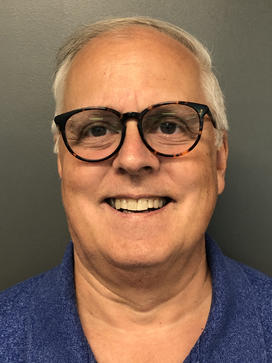Robert Hay ’81’s Mentor Community Is Aiding Ukrainians
When the war began, Hay’s Sunflower Community pivoted from aid for orphans to wartime relief
Last year, what began as Robert Hay ’81’s endeavor to mentor a few orphans in Russia and Ukraine soon became an arm of wartime humanitarian relief.
Hay founded the Sunflower Community, a mentoring organization for orphans and young people with disabilities in Ukraine in 2018, along with his former Ukrainian and Russian language teachers, who are both from Ukraine. When Russian forces invaded in February 2022, the Sunflower Community shifted its focus to providing emergency aid.

“We were in a great position to help when the war started because we had structures in place, employees in Ukraine, and people already on the ground who knew exactly what the needs were,” Hay says.
Hay majored in classics at Princeton, went on to Columbia Law School, and has been practicing law ever since. In the mid-’90s, Hay decided to start adopting children, and he found that Russia was, at the time, one of the easiest places to adopt. Over the course of seven years Hay adopted four Russian and two Estonian children. When Hay’s children grew up, he felt compelled to support other children in Russian orphanages — a disproportionate number struggle to find housing and employment. He would mentor a few young adults, Hay decided, to help them prepare for their futures.
Due to the geopolitical impediments to such an operation in Russia, however, Hay eventually decided to commence his efforts in Ukraine. For the first few years of its existence, the Sunflower Community supported mentoring programs and began working with the Kamyanets-Podilsky State Institute, a college for students with disabilities.
“When the war started, we were pretty much immediately on the streets of Lviv, a city in western Ukraine to which a lot of the internally displaced people fled,” Hay says. The Sunflower Community members who lived in Ukraine mobilized immediately, buying relief supplies and dropping them at distribution points. They sent packages to individuals in need as well, since the post service was still operating. If someone needed medicine or other necessities, they would contact the Sunflower Community. Hay, located in the U.S., was waking up at 3 a.m. to coordinate with team members overseas.
To date, the group has sent about 1,500 packages to individuals and families across Ukraine. The Sunflower Group also provided frontline aid to Bucha, where Ukrainian civilians were massacred by Russian armed forces in March 2022.
One of the relief efforts Hay takes particular pride in was the Sunflower Group’s delivery of baby formula to the city of Bila Tserkva while it was under fire. A heroic driver was able to get a van of supplies into the area during of the attack.
This summer, Hay visited Ukraine for the first time since the war began. “On the surface you see people very much living their ordinary lives,” he says. “But if you scratch the surface — and you don’t have to scratch very far — you see the effects of the war.” In one chilling moment while Hay was in a cathedral in Lviv, an air raid siren went off, but everyone carried on as if nothing was happening.
The Sunflower Group’s aid continues, with their original goals still in place as well. Hay says they continue to prioritize disability advocacy. This includes educating children about disabilities, preparing videos about how to talk to children about disabilities, and designing a group home for people with disabilities. “There is huge uncertainty about the future for young people in Ukraine given the war,” Hay says. He wants to be there to support them as they enter that uncertain future.









No responses yet